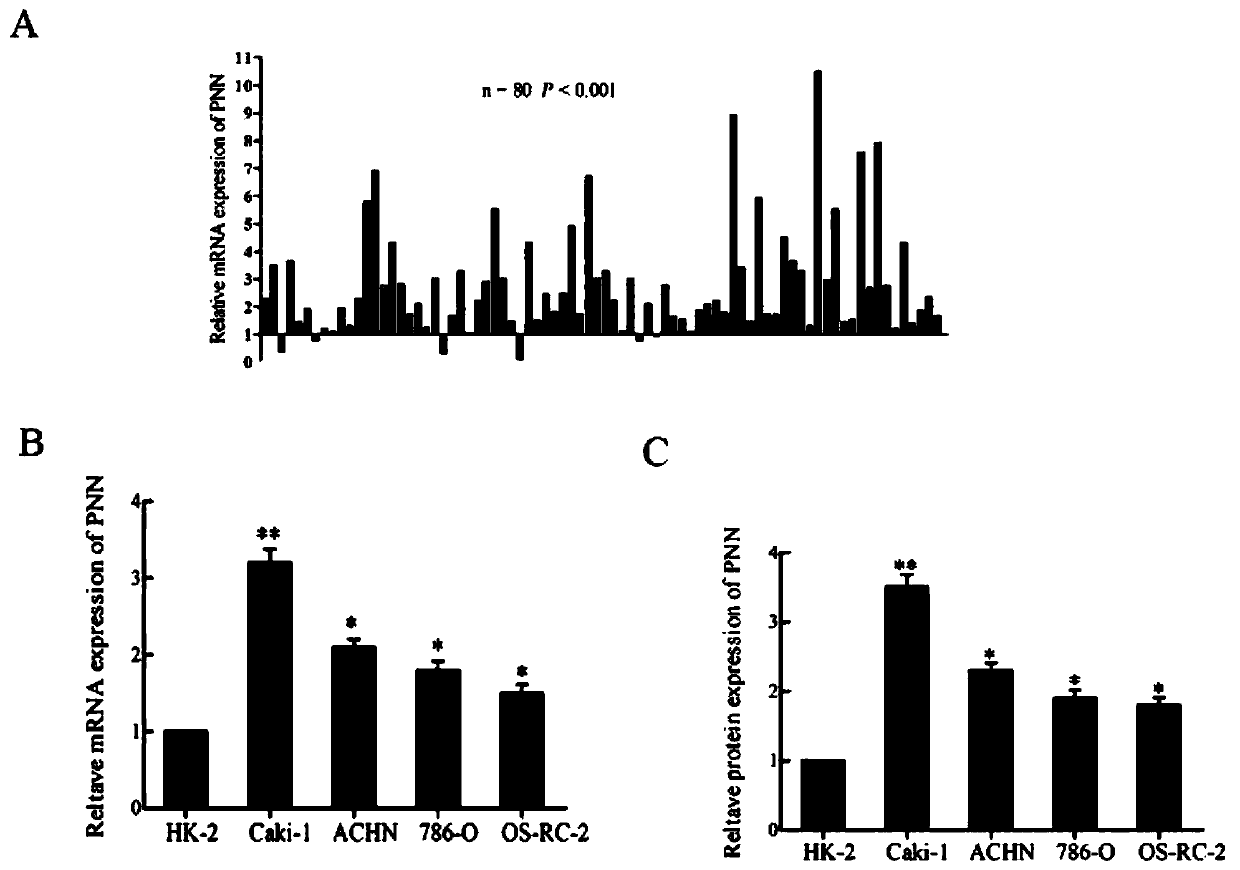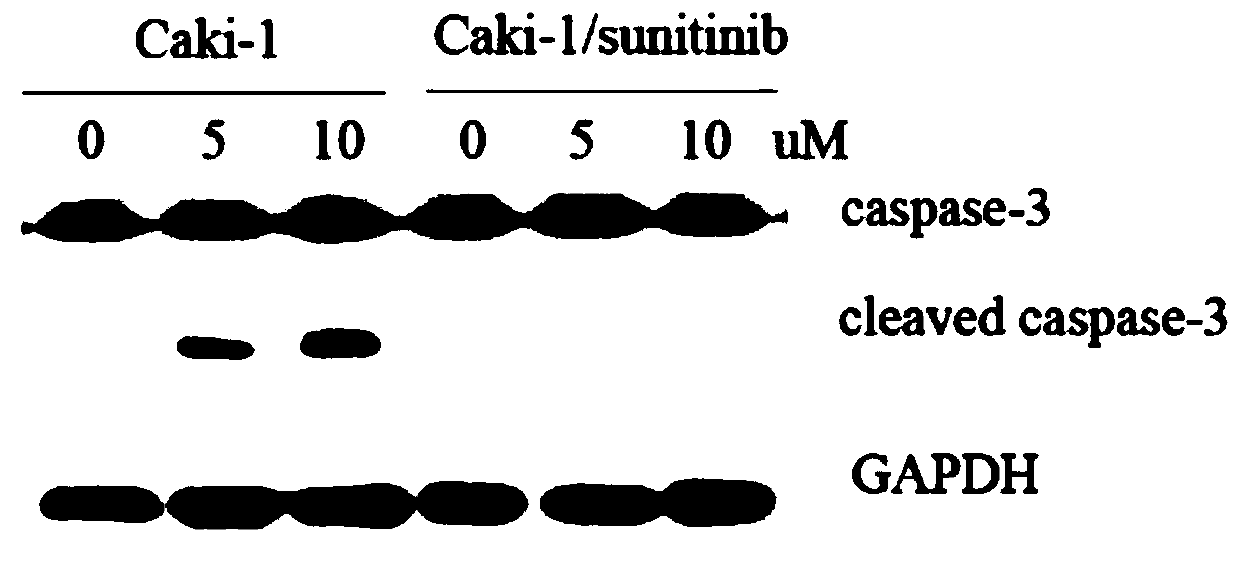Application of pinin (PNN) inhibitor to preparation of drug for reversing drug resistance of transferable renal carcinoma cells to sunitinib
A technology of sunitinib resistance and sunitinib is applied in the application field of PNN inhibitors in the preparation of drugs for reversing the resistance of metastatic renal cancer cells to sunitinib, which can solve problems such as chemotherapy failure
- Summary
- Abstract
- Description
- Claims
- Application Information
AI Technical Summary
Problems solved by technology
Method used
Image
Examples
Embodiment 1
[0033] 1. Cell culture
[0034] HK-2 (human renal cortical proximal tubular epithelial cells) and ACHN (human renal carcinoma cells) were cultured in DMEM medium containing 10% fetal bovine serum, OS-RC-2 (human renal carcinoma cells) and 786- O cells (human renal clear cell carcinoma cells) were all cultured in RPMI medium containing 10% fetal bovine serum; the corresponding concentration of sunitinib was added to the culture medium of drug-resistant cells. All cells were stored at 37°C, 5% CO 2 , Cultured in a saturated humidity cell constant temperature incubator.
[0035] Table 1 Histological characteristics and metastatic ability of RCC cells
[0036]
[0037] 2. QRT-PCR
[0038] 2.1 RNA extraction
[0039] After washing with PBS, add 1ml of Trizol (Trizol reagent), let it stand at room temperature for 5 minutes, and transfer it to an RNAse-free EP tube; add 200 μl of chloroform to shake and mix well, then let it stand for 5 minutes; centrifuge at 12000g at 4°C for...
Embodiment 2
[0091] Example 2: The relationship between the high expression of PNN and the pathological parameters of m-ccRCC clinical patients and the prognosis of patients
[0092] 1. Expression of PNN in clinical patient samples
[0093] In order to study the relationship between PNN and clinical case data, we performed immunohistochemical staining on 160 ccRCC paraffin tissues. The results showed that the expression levels of PNN in different clinical stages of ccRCC were significantly different (P0.05) (Table 8). The brown PNN granules are mainly concentrated in the membrane of RCC cells, and the positive expression rate of PNN in patients with stage III + IV is significantly higher than that in patients with stage I + II ( Figure 8 ). Referring to the judgment criteria of the immunohistochemical reaction results of Hadi et al. [21], the results were semi-quantitatively judged by comprehensively considering the percentage of positive cells in the number of cells of the same type ob...
Embodiment 3
[0099] Example 3 The role of PNN in the treatment of metastatic clear cell renal cell carcinoma with sunitinib and analysis of its prognostic factors
[0100] 1 clinical data
[0101]A total of 77 patients with advanced m-ccRCC who were treated in the hospital from June 2011 to December 2016 were selected. The expression levels of PNN in the tumor tissues of all enrolled patients were detected, and the patients were divided into a high PNN expression group (high) and a low PNN expression group (low). Among them, 41 patients received at least 2 courses of sunitinib treatment, defined as the sunitinib treatment group, and the other 36 patients were treated at the same time but did not receive sunitinib treatment due to other non-disease factors, defined as the control group (control). In the sunitinib group, there were 16 cases (39%) of primary metastases, and 25 cases (61%) of secondary metastases after radical nephrectomy. There were 25 males (61%) and 16 females (39%). Age...
PUM
 Login to View More
Login to View More Abstract
Description
Claims
Application Information
 Login to View More
Login to View More - R&D
- Intellectual Property
- Life Sciences
- Materials
- Tech Scout
- Unparalleled Data Quality
- Higher Quality Content
- 60% Fewer Hallucinations
Browse by: Latest US Patents, China's latest patents, Technical Efficacy Thesaurus, Application Domain, Technology Topic, Popular Technical Reports.
© 2025 PatSnap. All rights reserved.Legal|Privacy policy|Modern Slavery Act Transparency Statement|Sitemap|About US| Contact US: help@patsnap.com



